He completed the doctoral course at the Graduate School of Science, The University of Tokyo (Doctor of Science). In the same year, he became an assistant professor in the Department of Physiology, School of Medicine, Teikyo University. In 1993, he joined the Communications Research Laboratory (currently NICT). After working as the Head of the Biophysical Properties Laboratory and the Group leader of the Biological ICT Group, he became the Director General of the Advanced ICT Research Center in 2008. In 2011, he became the Director General of the Advanced ICT Research Institute. In 2013, he became a NICT Fellow and returned to research as a Distinguished Researcher.
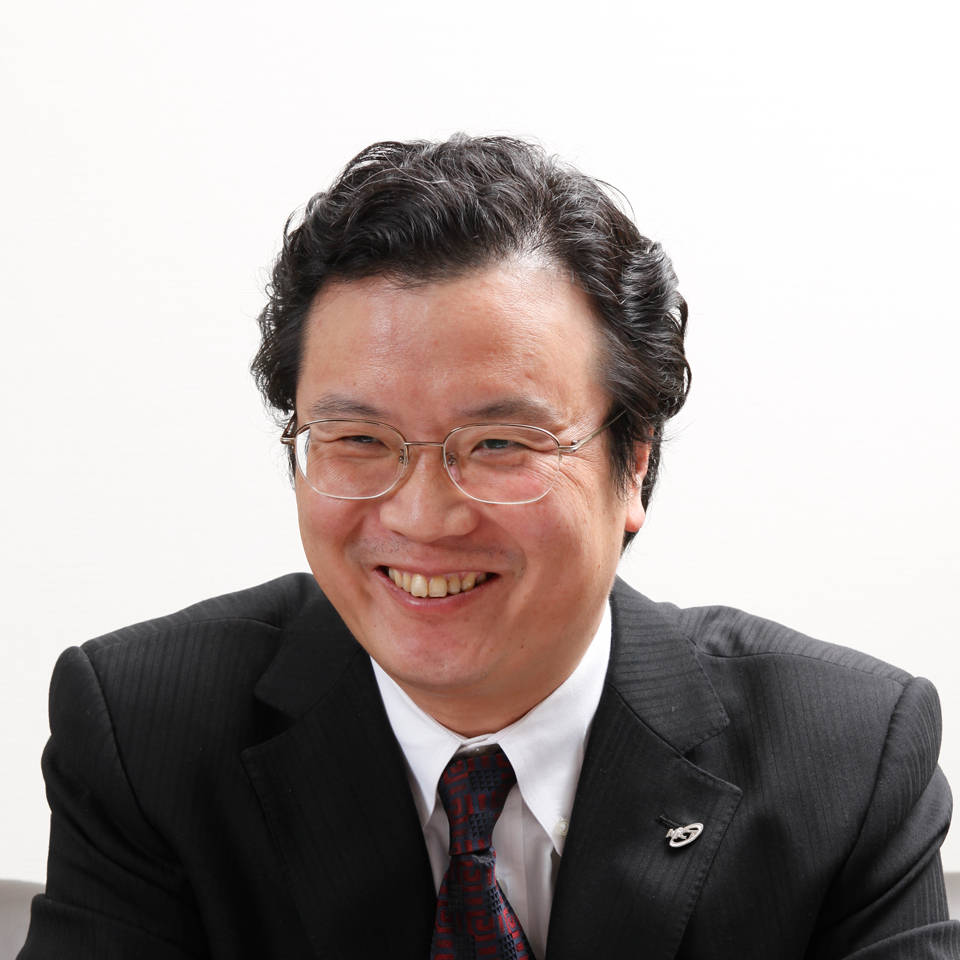
When I was a child, I loved all living things. I liked to go to a grove of oaks to catch beetles by getting up early in the morning and loved hatching crayfish eggs for observation. The school I went to let us do a lot of experiments. Thus, I often looked into a microscope. There, I was attracted by the beauty of the orderly structure of living things. Totally fascinated by the world full of mystery, I came to wish to study biology.
In 1993, I was interested in the novel idea that NICT had at that time to conduct research on biotechnology as a basic research in the field of information and communication. Then, I applied for their life science laboratory. NICT was taking on new challenges, such as research on biotechnology, which did not seem to be directly related to information and communication. When we take protein out of a living thing, we can treat it as a thing. I thought of aligning and using moving proteins to create a cool device. By doing so, I wanted to combine biology and engineering. In fact, I conducted a research on the development of a device through collaboration with the Nano Structure Laboratory as my first research project. As the research activities continued to grow, this research field was lively and interesting. I was fortunate that NICT gave me a high degree of freedom in choosing research themes.
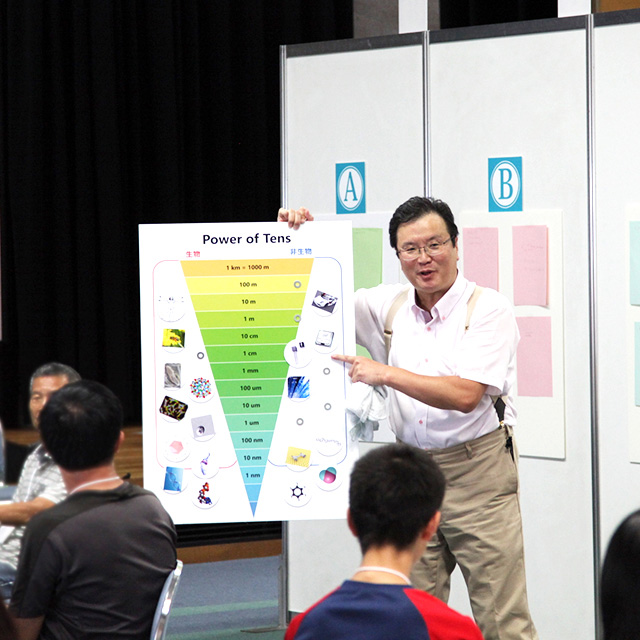
Currently, I am in a position to support and give advice extensively on research activities of the Institute. For my current work, I make use of the knowledge I have gained as a researcher working for many years on the application of biotechnology in the field of information and communication and the issues I have managed as the Director General of the Advanced ICT Research Institute. At the same time, I conduct, as a researcher, basic research on life sciences in the Biological ICT Group. Thus, I still conduct observation and measurement by myself using a microscope. If you want to be active in NICT, you should keep your eyes open for new information. It is important to cherish your own ideas and conduct research steadily. However, it is also essential to have the flexibility to incorporate any technology that you think is effective to satisfy your desire to know more.
NICT's research often relates to national policy making. Accordingly, there are many situations where we need to explain a technology and its significance even to non-specialists in an easy-to-understand manner. Meanwhile, unlike research conducted at university, we must develop organizational activities to promote our initiatives. Thus, after becoming the Director General of the Institute, I tried to encourage research that seeks integration with different research fields inside and outside the Institute. To connect each field, an interpreter is required. To fulfill this role myself, I read many books so that I can make an effective presentation and choose suitable words. For example, even the term "information" has different meanings in the fields of biology and information and communication. Therefore, I prepare very carefully for lectures and presentations. To tell the truth, this is partly because I am not good at speaking off the cuff. As such my efforts helped me become known by more people, an increasing number of people thought that our research is interesting and have formed a supporting group for our institute. It is important to meet, talk, and hold hands with others. By receiving inspiration from others, we can find more advanced research policies.
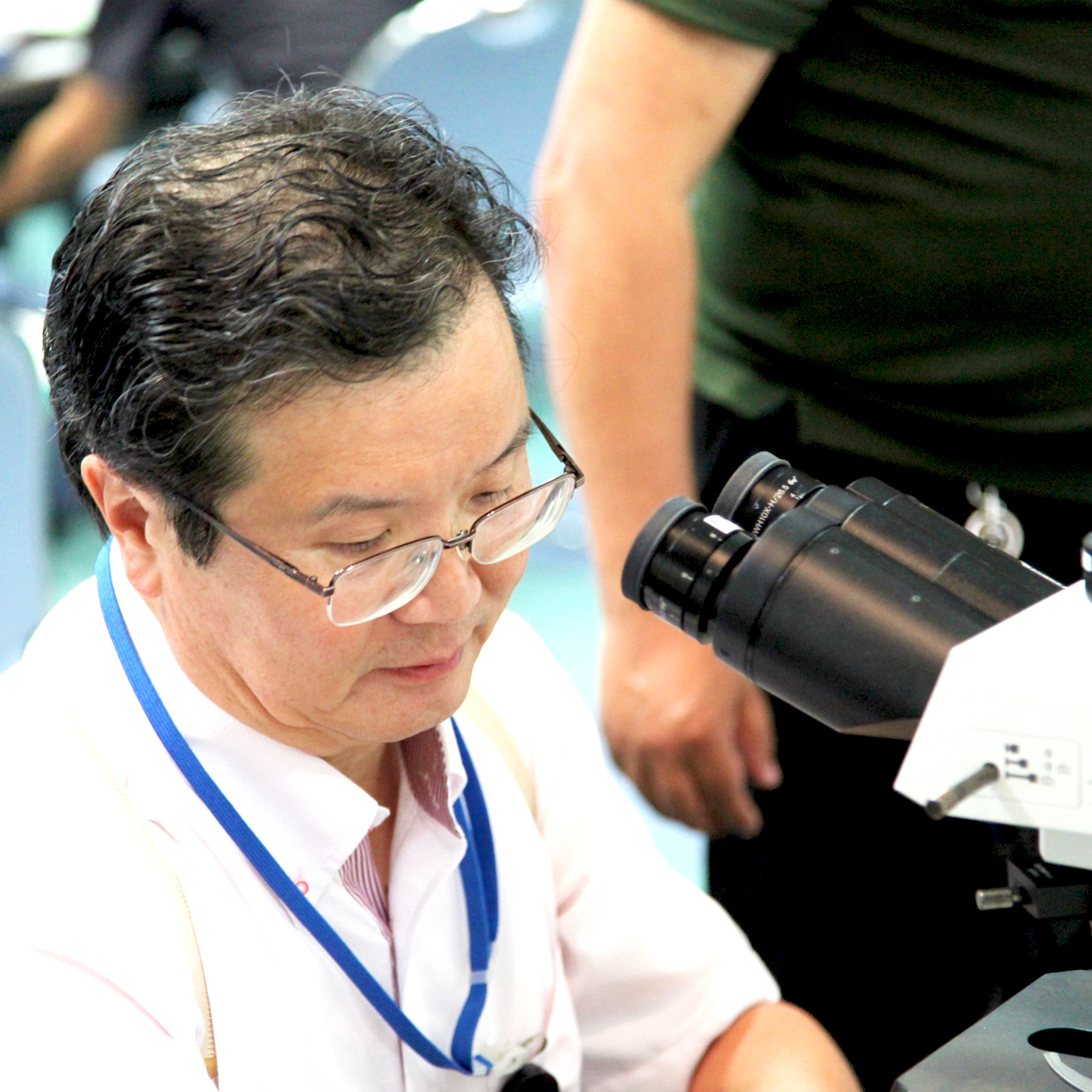
When I was a fledgling researcher, I continued to write letters to Dr. David Trentham*1, an authority on enzymology, asking him to let me learn his techniques. When I was allowed to study at his laboratory, the funding problem arose. Because I had joined NICT already after graduating from university, I became ineligible to the funds that I had planned to use. However, my boss at that time came up with the necessary money for me. Thus, my dream to study abroad became possible.
Dr. Trentham was very humble and taught me attentively how to conduct research step by step. From him, I learned a lot about how important it is for a researcher to place high value on the actual site of research. Staying in his laboratory all the time, he helped us using his excellent problem-solving skills and proactive mindset. When I did not know what to do with my problem, he immediately instructed me to consult with a researcher for guidance. Researchers face difficult times when they cannot produce results. In such a situation, your network with other people plays an important role. If you start a research project jointly with others during a such difficult time, the project may sometimes generate breakthroughs.
From this point of view, it can be said that global awareness is essential for research activities. At NITC, you can organize by yourself global events for academic exchange, such as an international conference. We have held international conferences regularly, inviting many researchers from overseas to have deep discussion. Through these initiatives, I believe that we have made a great contribution to the progress of this research field.
Perhaps because I frequently visited the actual research site, I discovered one day that protein filaments*2 were moving around on the glass slide. The technical researchers told me that that was a phenomenon often seen. Enchanted by the unique phenomenon, however, I re-examined it after everyone went home. Then, by changing the magnification of the microscope, I discovered that the filaments*2 were, in fact, moving in a circular orbit. I will never forget my joy in that moment. This is what we call a serendipity. I was so excited, thinking that I was the first person in the world to discover this. I am thankful for my good fortune in finding it as a researcher. Then, I consulted with a theory professor at Kyoto University and asked him to cooperate in extracting the underlying physical phenomena. Thus, I came to publish a paper in the Nature journal in 2012. The interdisciplinary research between materials and life science has become common all around the world today. Relating to such research efforts, I succeeded in conducting pioneering research in the field that currently attracts much attention, including the research on how to artificially orient motor proteins on a substrate using nanotech materials and processing technologies.
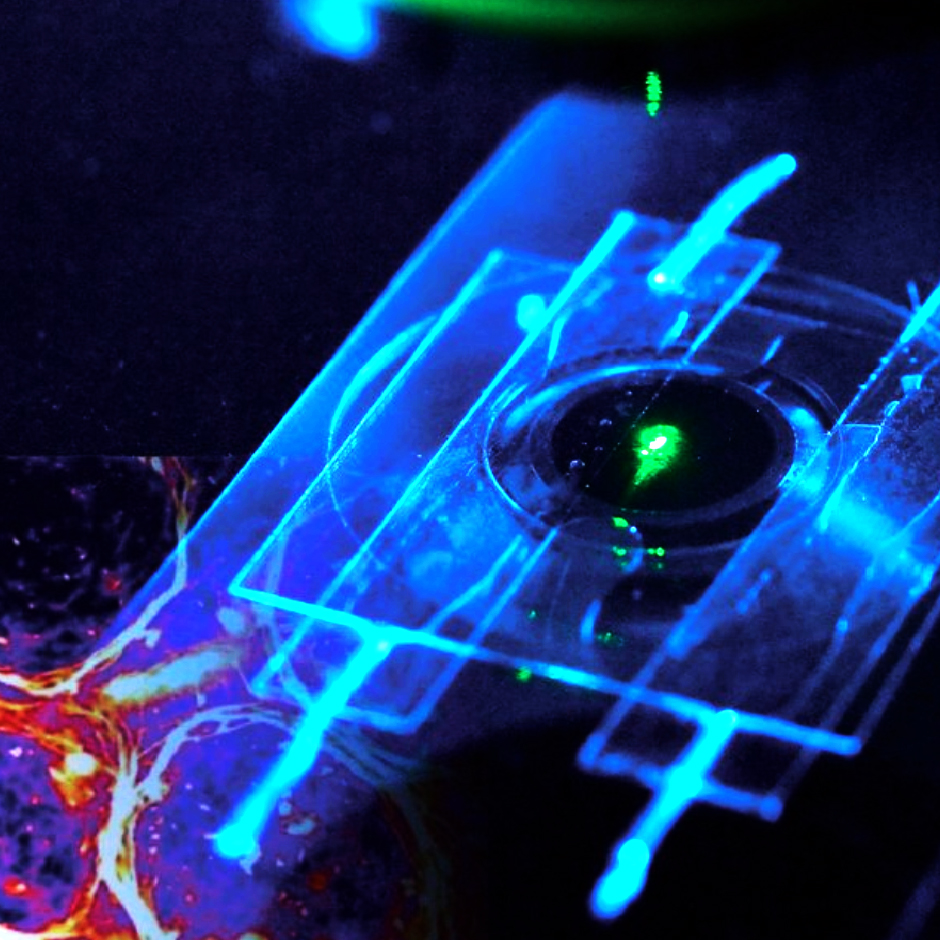
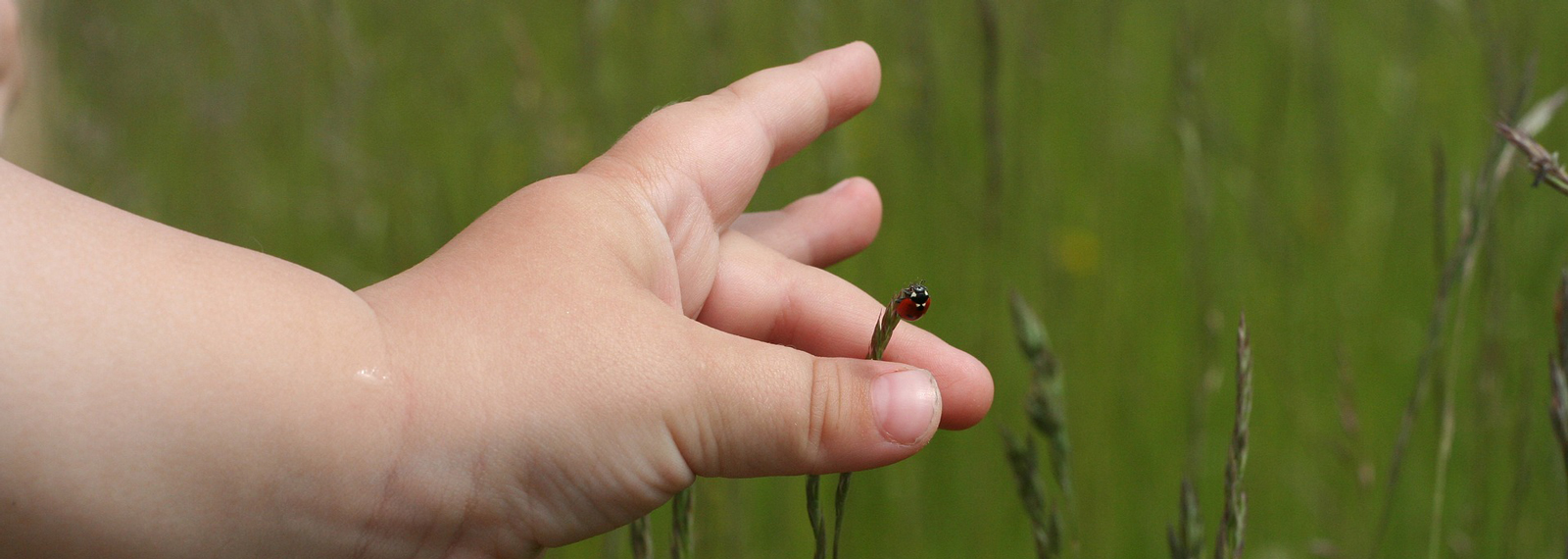
Today, I often work from home due to the spread of COVID-19. Doing meetings and paperwork at home, I concentrate on my research on the days I go to work. This led to the improvement in my work efficiency. I am glad that I became able to ensure time for implementing experiments. On weekends and holidays, I spend much time with my family. I also enjoy playing tennis. When my children were small, we often went camping. At such times, I encouraged them to try new things, such as looking under a stone, to achieve a new awareness. Thus, I tried to help them expand their world. In the future, I would also like to tell the children in my neighborhood on how to gain a new awareness of their world.
*Photo is for illustration purposes only.
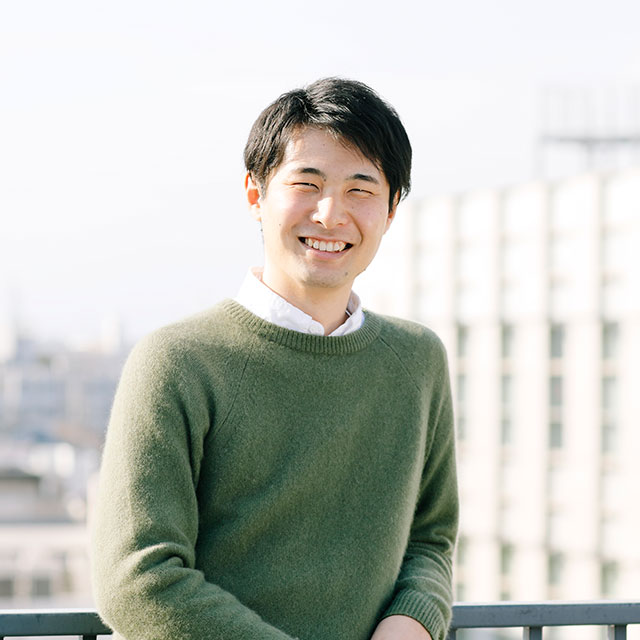
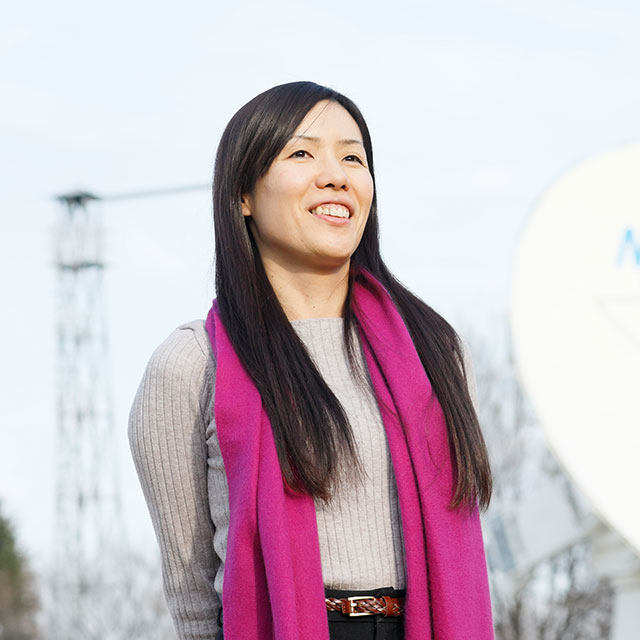
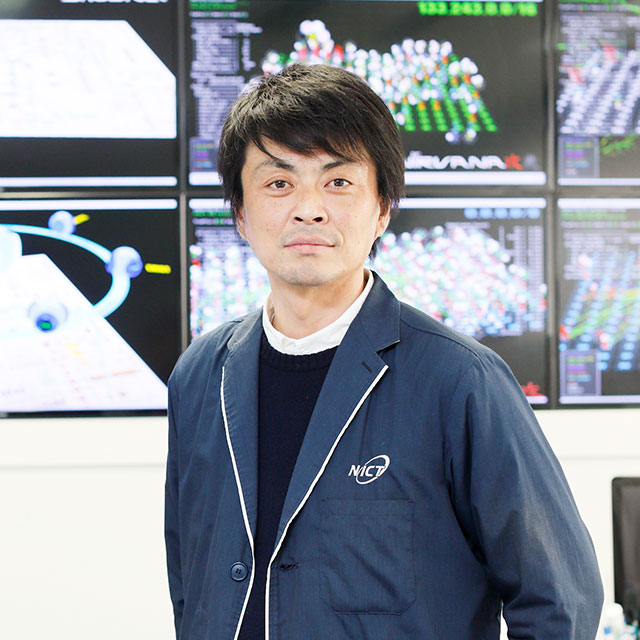
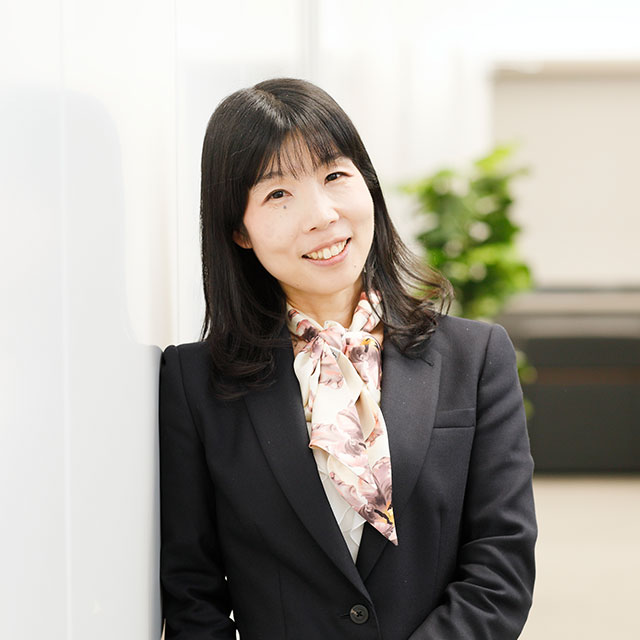
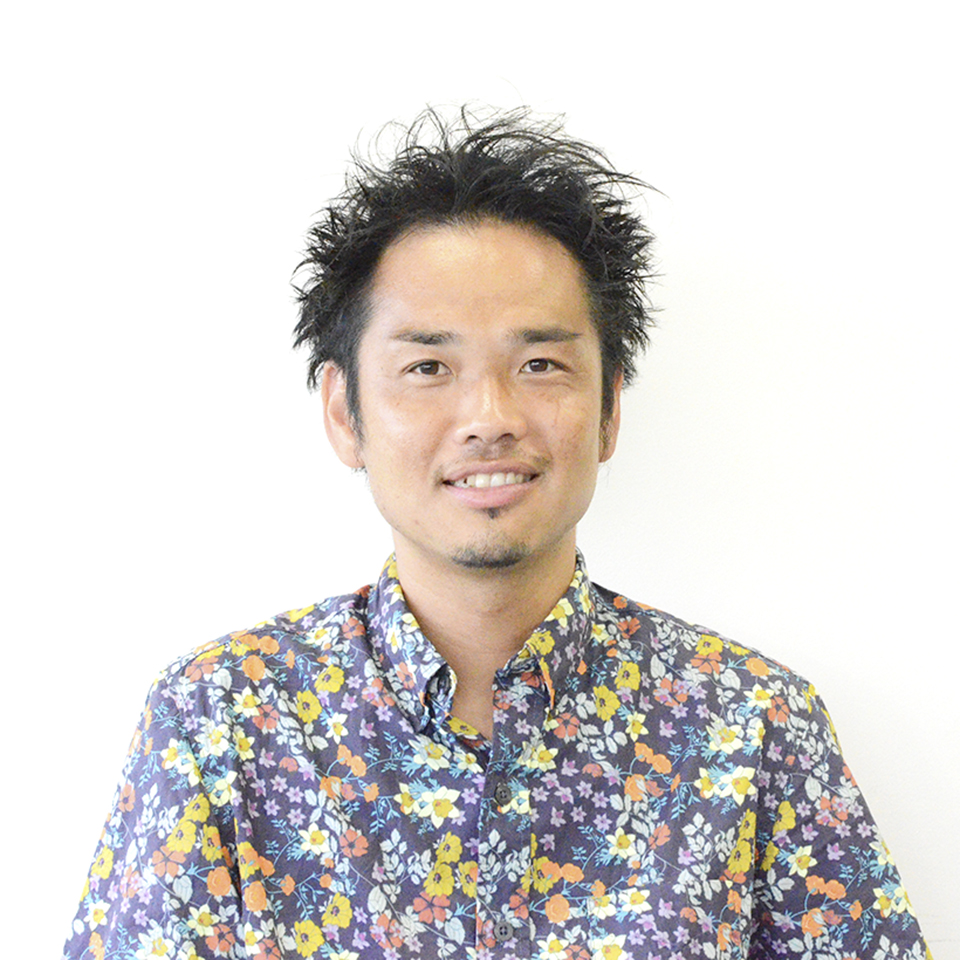
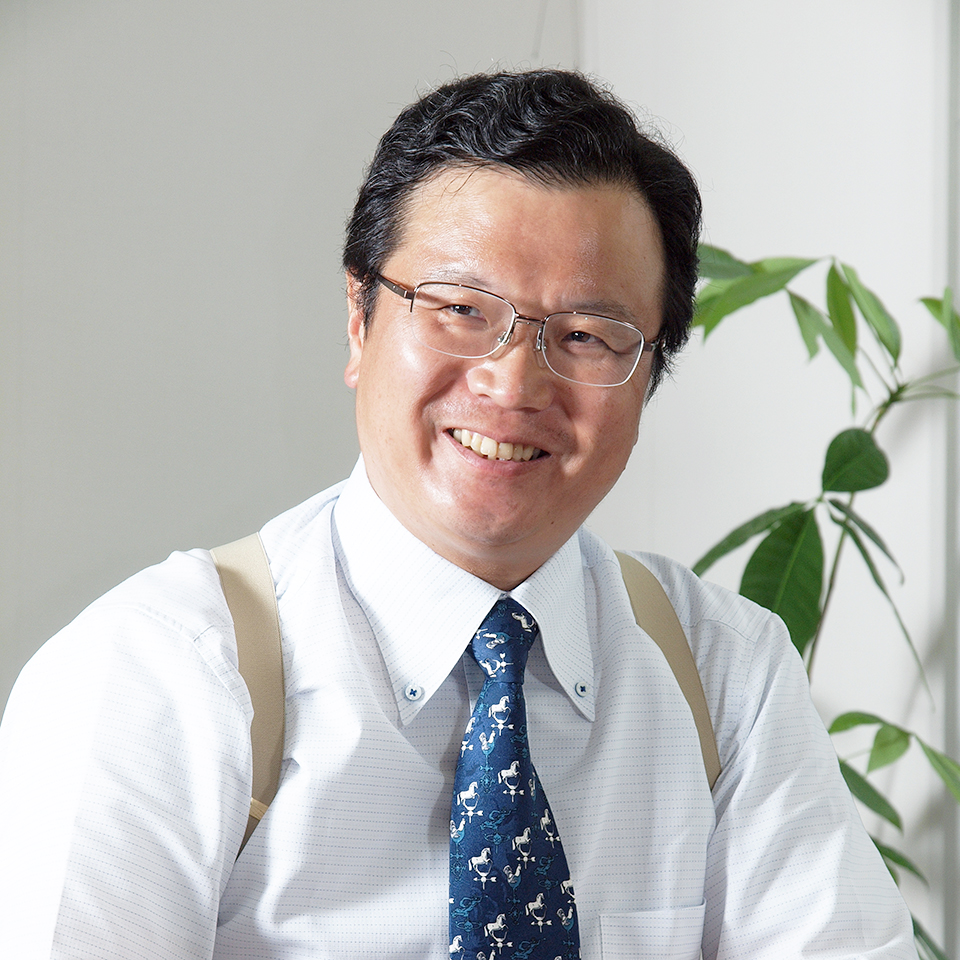
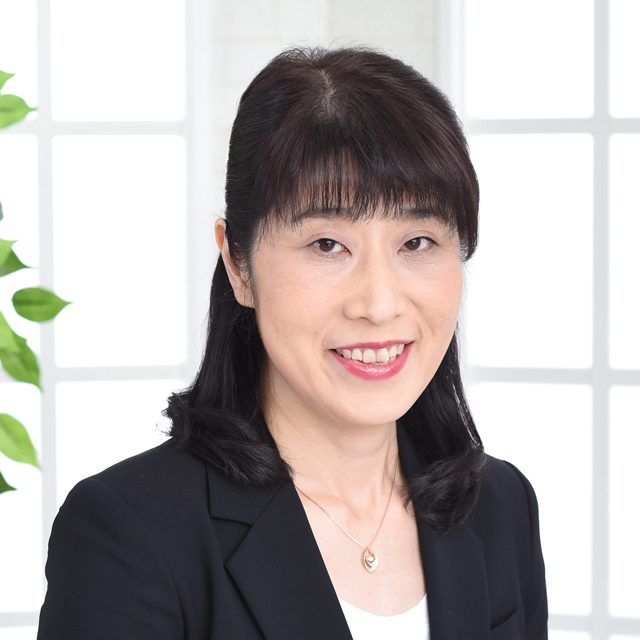
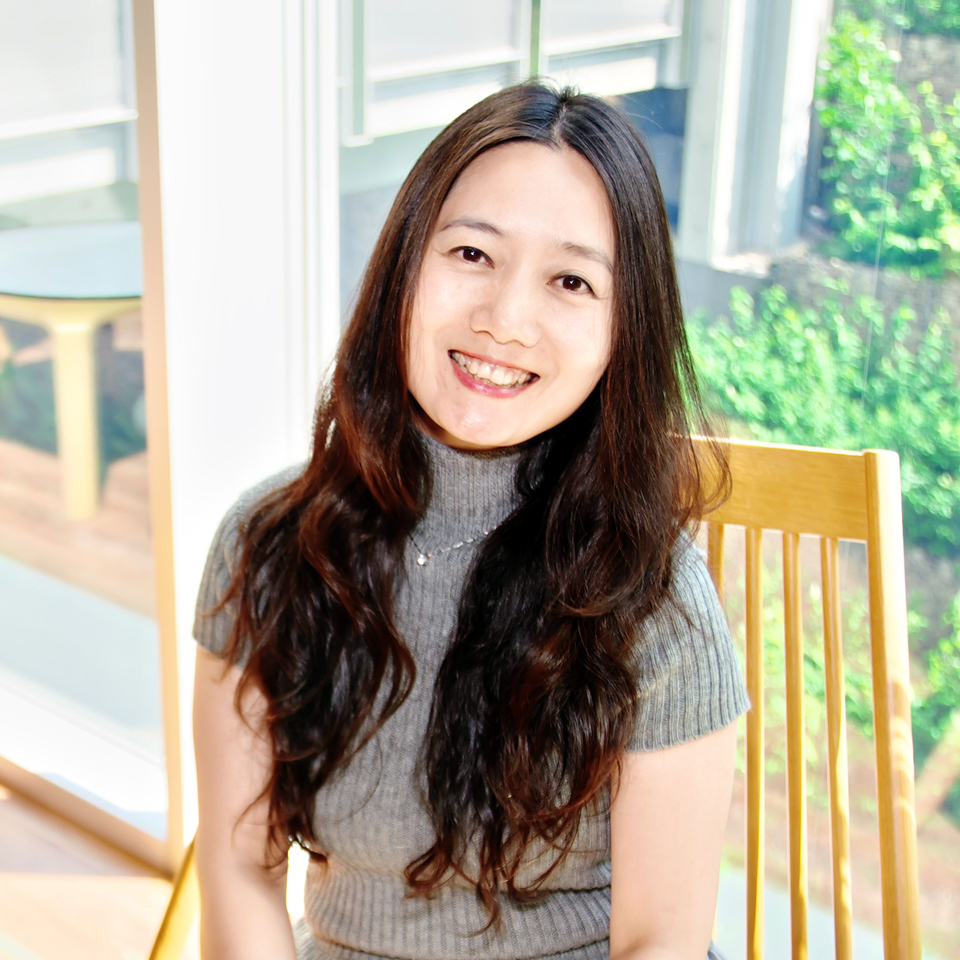
If you have any questions regarding recruitment, please contact us below.